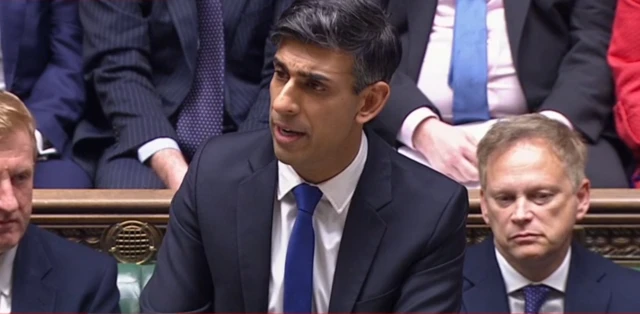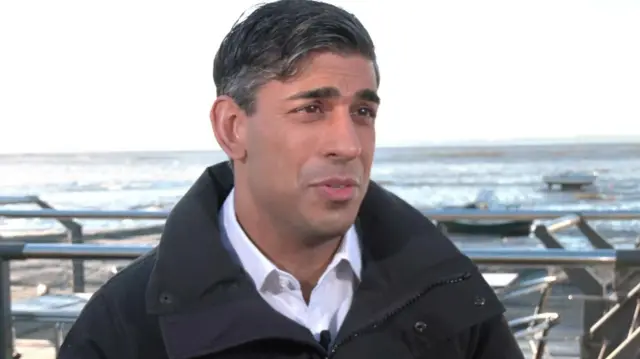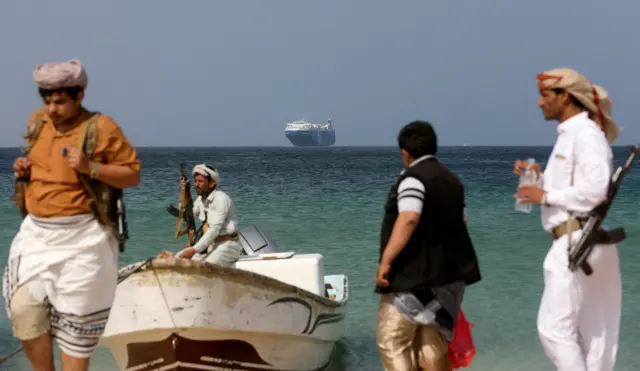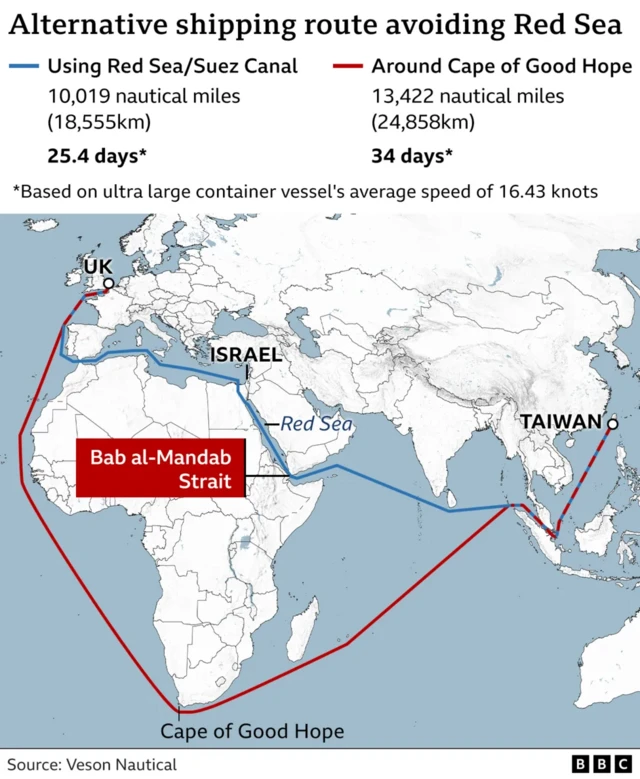UK prepared to 'back our words with actions'published at 15:47 GMT 15 January 2024
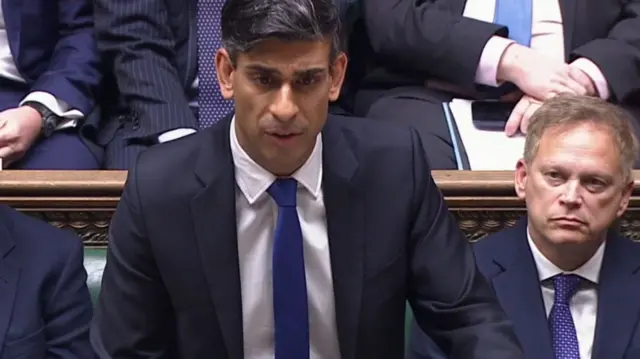 Image source, House of Commons
Image source, House of CommonsThe Houthis' attacks risk worsening the "dire humanitarian situation" in Yemen itself, continues Sunak.
He points out that food aid for hundreds of thousands of Yemenis arrives via "the very sea routes the Houthis have in their sights".
Sunak says that the UK is prepared to "back our words with actions."
He adds that these military actions do not detract from other international commitments, but instead strengthen the UK's determination to uphold "fundamental UN principles".
If our enemies think they can distract us from our obligations in Ukraine, he says, "they could not be more wrong".
